|
Disclaimer: This blog talks a lot about Amazon, but we are not connected to them in any way other than that we use their platform sell our books. We are definitely not being paid to mention their name and nor are we recommending their services. We are just recounting our experiences in the hope of passing on some of the knowledge we have gained. Here at Selfishgenie Publishing we know that it pays for small publishers and Indie authors to advertise. Not only do we know this, but we have the data to support our arguments. What we have also found, however, is that we can’t rely on some of the data that is provided to tell us if our advertisements are paying for themselves. Over the past 6 months we have been experimenting with our advertising tactics to see which give us the best results. Recently we have been focused on Amazon as the advertising platform of choice. But the first thing we noticed was that the metrics (measurements) provided by Amazon on their platform weren’t matching up with our actual sales.  According to the report for one campaign, we sold x number of books, but according to our actual sales data we had sold yx copies, which was a considerably larger number (sorry to be so vague with the numbers, but that data is privileged information). This is an important difference, because had we believed Amazon’s numbers, we would have concluded that our advertising budget had been wasted. That is because of the ACOS. For those of you unfamiliar with ACOS, it is a calculation that Amazon does to compare the cost of the advert with the income Amazon believes the advert generated It means “advertising cost of sales”. Based on their figures, our ACOS was 198% of what we would get back in royalties as a result of placing the advert. In other words, if we had spent £2 on advertising we would only be getting back about £1 in royalties.  .And that does make it look like we had wasted our money. However, a quick click over to the various websites where we sell our books revealed that we had sold far more books than Amazon knew about – and that included sales through Amazon itself (BTW, when we say “sales” we also include Kindle Unlimited pages read. They account for about two thirds of our total revenue). When we divided the ACOS by the revenue that was actually generated, we got a far lower number, which demonstrated that our advertising campaign was justified in terms of its cost. In fact, for every £1 we spent we got over £5 back. Even after splitting that 50:50 with the author, everyone was making money. OK, Amazon doesn’t know how many books we have sold through other websites and we don’t know how many people have seen our books promoted on Amazon and then gone elsewhere to actually buy them. “Ah,” you might say, “so how do you know those sales were the result of your advertisement?” A fair question. So, why the discrepancy in data? The answer is that we know because the sales were for the same books as we had advertised, or they are part of the same series and there had been a sharp “up tick” in sales coincidental to the dates when the advertising campaign had been run. So, why the discrepancy in data? The first reason is that Amazon does its calculations based on “impressions” and “clicks”. First of all, Amazon Ads measures how many customers had the advertisement placed in front of them (the basis of their charging), either as a result of a search or as a “recommendation”. Then they measure how many of those customers clicked on the link in the advert to take a closer look at the book, and then they count the number of clicks that were made to actually buy (or download) the book. The first number was very high, the second number was lower and the final number was, unsurprisingly, lower still. But what Amazon doesn’t take into account is the psychological effect of the advertising process.  Oh, here we go, he’s wandering off into some metaphysical introspection now. No – I’m not. Please bear with me. Firstly, there is an old adage in advertising that says people have to see an advertisement 7 times before they respond to it. As with all such rules, it is a generalisation. Some people will respond the first time they see an advert, because they have a need for the product and now they now know how they can satisfy that need. Some people, on the other hand, may never respond because they have no need for that product, or because they are very happy with a similar product supplied by a competitor. 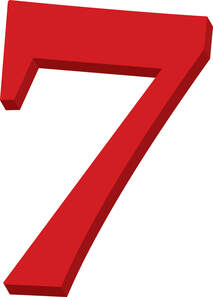 But this generalisation around ad campaigns is important, because the author has to to allow time for those 7 exposures to the ad to take place. In all our ads we have noticed that response was lowest at the beginning of the campaign and then increased as time went on, usually from around day 4, until it reached a plateau. We also noticed that sales were highest at the weekend (including Friday evenings), which suggests people buy more books then. So, it seems to be a good idea to time the ad so some of the exposures occur towards the end of the week, for maximum impact. A second reason is that the advert is for a product the reader may have already purchased, but the target is reminded that the same supplier has other products and they go and look at those instead. Eg they see an advert for Heinz tomato ketchup, they already have enough ketchup, but it reminds them they need Heinz baked beans and they go and buy those instead. We know absolutely this was what was happening with our books. We were making sales of titles other than those we were advertising. People had already bought Book 1 in our Carter’s Commando series, the book we were advertising, but they were reminded of the author’s name and went looking for other work by him and bought those books instead. The final part of the conundrum is that sales continued after the advertising campaign had ended. Why was that? 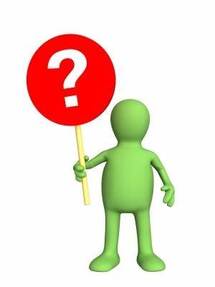 Partly the same as the reason above, the readers went and looked for other titles by the same author after having bought the one we advertised. But part of it was that either the author’s name or the book’s title had been subconsciously planted in the reader’s memory, so that when they saw it pop up in search results later in the month (which we hadn’t paid for) they responded and bought the book. So, what did we learn by running these recent advertising campaigns:
Here endeth the lesson, Go in peace to enjoy the rest of your day. But if you are struggling to make sales, you may need to think about paying for some advertising. We know it costs money, but if your book sells, it will be a worthwhile investment. And if your book still doesn’t sell, you have to ask yourself why readers aren’t responding to it. But that is a whole different blog. If you have enjoyed this blog or found it informative (Hopefully both), be sure not to miss future editions by signing up for our newsletter. We'll even send you a FREE ebook for doing so. Just click the button below.
0 Comments
This week our guest blogger takes a look at the vagaries of the English Language and how we ended up where we are. The views expressed in this blog are those of the blogger and don't necessarily represent the views of Selfishgenie Publishing.  One of my friends on Facebook, an Irish lady, posted this picture and asked an open question about who felt confident about the pronunciation of the product name (no, not Heinz - the other bit) . She was re-posting it from another Facebook page which is owned by an American on-line magazine. I was able to reply with the information that English place names that include the letters “cester” don’t actually pronounce the “ces” part, so the correct pronunciation is Wooster-sheer. The incorporation of “cester” into a place name means that it was founded by the Romans when they were in Britain and has its origins in “castra”, which is Latin for a camp. It is also the origin for place names that include “chester” as in Chester and Manchester. From that word we also get Doncaster and Lancaster. Incidentally, the “lan” part of Lancaster comes from the nearby River Lune (pronounced loon), but I’m guessing the people of the city didn’t fancy being known as the people from Looncaster.*  Chester - a city founded by the Romans Chester - a city founded by the Romans The pronunciation of Worcestershire is problematical for three reasons. Firstly, there is the pronunciation of Worc, It looks as though it should be pronounced as work, but the c in cester is soft, which makes the pronunciation worse, both literally and figuratively. I’m guessing the people of Worcester and its parent county didn’t fancy living in worse-tur, so the pronunciation shifted to woos. Secondly the “shire” part is pronounced sheer when it is quite clearly spelt to rhyme with hire. But that’s the English language for you, full of anomalies such as that one. I’ll return to that a little later. The final reason for this pronunciation being problematical, and pedants will already be penning their e-mails to tell me so, is that it is a sweeping generalisation and can’t be universally applied. What about “Cirencester”? They will ask. The “cester” in that is pronounced, otherwise it would be siren-stir and not siren-sester, like sister but spelt with an e. But anyway, Gloucestershire is pronounced gloss–tur-sheer, Leicestershire is less-tur-sheer, Towcester is toaster and Alcester is all-stir. 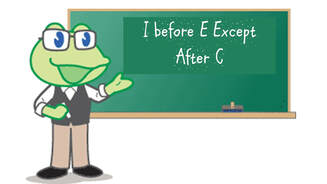 This is part of the problem with English. It isn’t consistent with the application of its own rules. Especially the English that is spoken in the United Kingdom. Take “I before e except after c”. I think there is sufficient evidence to allow us to draw a veil over that one. In fact, there are far more words that don’t obey the rule than there are words that do. The saying itself isn’t even complete. Ebenezer Cobham Brewer’s 1880 “Rules for English Spelling” gives it as “i before e, except after c, or when sounded as "a," as in neighbour and weigh.” But there is insufficient evidence to support that, either. Despite Cobham being English and never having visited America, the use of his rule in schools started in America, not Britain. But there you go, rules are meant to be broken (actually they aren’t, but that’s a whole different blog). But there are a lot of words we don’t know how to pronounce, or which some Smart Alec decides we are pronouncing wrongly and who change it. Take the name of the warrior queen Boadicea, for example. 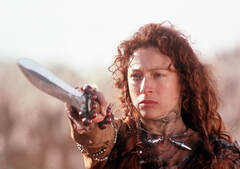 Actor Alex Kinston as Boadicea Actor Alex Kinston as Boadicea A long time ago, when I was growing up, she was universally referred to as Boadicea (Boa – d - seer). It is even engraved on her statue, which stands close to Westminster Bridge in London. In 1797 a British frigate was named HMS Boadicea, there was a passenger ship of the same name which was wrecked off the coast of Ireland in 1816 and there was a 1928 film entitled Boadicea. Yet somehow it was decided by someone that this was wrong and all of a sudden everyone started calling her Boudicca (Boo-dick-uh). Why and on what authority? I blame actor Alex Kingston, who starred in the TV drama Boudicca, Warrior Queen, in 2003. 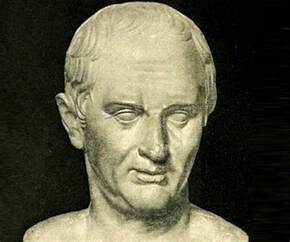 Roman historian Tacitus; AD56 to AD 120 Roman historian Tacitus; AD56 to AD 120 The only reason we know of this woman’s existence (that’s Boadicea, not Alex Kingston) is because of the Roman historian Tacitus, who recorded much of Rome’s history of the first century AD. However, he wasn’t born until AD 56 and never set foot in Britain. Given that Boadicea (I shall insist on using that name) died in AD 61, Tacitus would only have been 6 or 7 years old and could only have heard of the warrior queen second hand from his father, who had served in Britain 3 times, including during the rebellion for which she is famous. He would have heard about her in Latin, the Roman language and not the language of Britain, whose native people were Celts. It is from Tacitus that we get the spelling and pronunciation of Boadicea, not Boudicca. As the Celts didn’t have a written language at this time, we have no idea how her name would have been spelt or how the Celts would have pronounced it. So, it would appear, someone has taken it upon himself (or herself) to decide how the Celts would have pronounced it, with no regard for the lack of historical fact. They may look to Welsh, Scottish or Irish pronunciations, but that would be wrong, because those nations would have rendered the name into their languages from Latin as it was the only written source available. 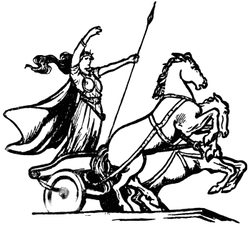 If you doubt this, then you have only to look at how Welsh and Gaelic speakers render modern words into their own language. The Welsh for “television” is teledu and the Irish is teilifís. Given that these words were created in modern times they could just have been accepted without translation, much as the French use l’weekend, but no, they had to be given a linguistic twist to make them “Celtic”. Could the same not have been done with the name of Boadicea? Is the use of the name Boudicca not just us pandering to first century Celtic chauvinism? Or maybe even to late 20th century Celtic chauvinism. What is my evidence for all that? She wasn’t actually a Queen at all so would not have been known widely outside of her own lands. She was the wife, and subsequently widow, of Prasutagus who was a client King of the Romans in an obscure and quite remote part of eastern England, a small part of the county we now call Norfolk. Her rebellion was short lived, lasting only a few weeks, and while she wrought havoc during that time she died ingloriously, crushed by the Roman legions. She wouldn’t have been admired, even by her own people, after that defeat. In fact, given the reprisals visited on the natives by the Romans after the rebellion, it is more likely that her name would have been more cursed than celebrated. As I said, the only reason we know about her at all is because of a Roman historian who wrote her name in Latin and it was Boadicea. 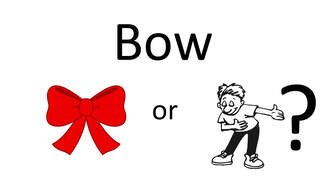 But back to words and their pronunciation. How do you pronounce “bow”? If you have thought about it you will have come up with two different pronunciations. Pronunciation (1) rhymes with “go” and pronunciation (2) rhymes with “cow”. You only know which is correct when you put other words alongside it to make it clear which bow you are talking about. So, you would need to know that the mother tied the ribbon into a pretty bow for her daughter’s hair, or that the man bent over in a deep bow of respect for the king. English is almost unique in having words that can be both nouns and verbs, depending on how we use them. No other language does that. This is why we get a noun such as bow, which can mean a knot or a weapon, and also a verb, to bow. We also have run, which is a verb and also a noun – a place for running as in chicken run and walk, a verb which means to move at a particular pace but which can also be a noun – a good walk. There are many others. How do we teach this to our children? Actually we don’t. They appear to learn it for themselves. No one is sure how, but they seem to pick it up instinctively. However, in many ways English is also a simple language. Take the definite article “the” as in the chair, the table etc. That’s it. That’s all we have. It’s gender neutral and doesn’t change between the subject and object of a sentence. German has der, die, das, den and dem for the same thing and the French have le, la and les and also, frequently, l’. In German there are 7 different versions of “you” depending on gender and familiarity with the person being addressed. The French have at least 2, tu and vous (I’m not a linguist so I am happy to be corrected on that). The Japanese have 7 forms of “thank you” starting with the simple arigato and moving up though levels of formality until the speaker is lying prostrate, face down on the ground. Just joking, but it isn’t far from the truth. The Japanese language is very big on formality, as are many others. English, however, seems to be much less worried about formality these days. 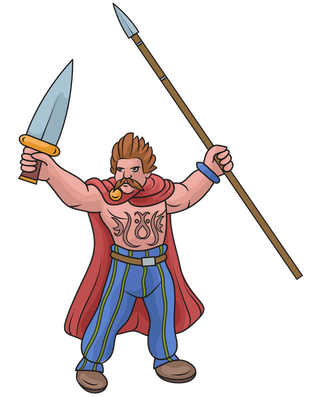 Much of this is because our language isn’t pure. 2,000 years ago the residents of these islands would all have spoken the Celtic language(s), because the Romans’ only successful invasion wasn’t until AD42 (get ready for a big anniversary party in 20 years’ time). But they wouldn’t all have spoken in the same dialect. We know this because Welsh, one of the ancient Celtic languages, is different from Gaelic, which is spoken in both Scotland and Ireland but has differences even between them. They are all different from Manx, spoken on the Isle of Man., Then there’s Cornish and Breton. It wasn’t really the Romans that brought us Latin, it was more to do with the clergy, who used Latin to communicate between themselves and taught it to the children of the aristocracy and the wealthy, who also used it as a way of communicating with their peers throughout Europe. Many of our words have a Latin origin, even though a lot of them came via other European languages. European philosophers loved the Ancient Greeks and quite a lot of our words have their language as their origin because of that, especially those relating to medicine and science. 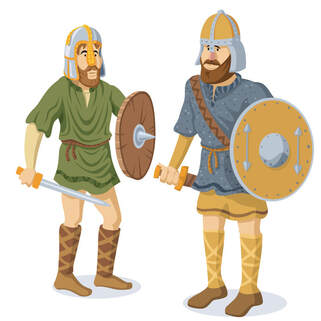 About 1,500 years ago our ancestors started to speak Anglo-Saxon, brought with us (or perhaps to us, depending on your ancestry) by the invaders who filled the power vacuum created when the Romans went home. This is still the basis for our language but only scholars of mediaeval languages would be able to understand what a Saxon warrior was saying, were one to rise from the dead in today’s Britain. Mixed in with our Anglo-Saxon is Norse, brought to us by the Danes and Norwegians between 1,300 to 1,000 years ago, then sprinkle in some Norman French which arrived 950 years ago. Thanks to the Plantagenet’s we get more French, the real thing, which was brought in about 850 years ago and from that recipe the language we now call English began to emerge about 700 years ago. English wasn’t even the official language of the Royal Court until the time of Richard II, who died in 1400 (Trivia - he also introduced the fork into England as an implement of cutlery). With a bit of difficulty, we would be able to understand the dying words of Watt Tyler, the leader of the Peasants’ Revolt, who died in 1381. As he was beheaded his last word was probably “argh”, but you get the idea. 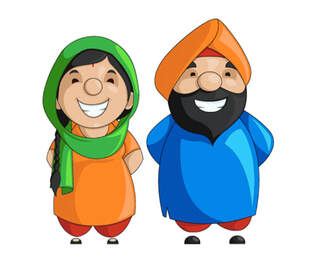 The eastern influence The eastern influence Even though English was a fully formed language by the 1500s, it didn’t stop changing even after that. In the 19th century we started to adopt words from much further east. If you are in the habit of wearing pyjamas when you are in your bungalow, you are using two words that have their roots in India. From that it is unsurprising that so much of our language is confusing. Each new addition brought new words, new ways of saying things and new ways of spelling, much of which wasn’t written down because the Anglo-Saxons and the Danes didn’t have a written language at the time of their arrival. It was monks who wrote things down and they did it in Latin, not Anglo-Saxon. When the monks started to create a written version of the common languages they had to invent new letters, such as æ because there was no equivalent sound in Latin. They even had to invent the letters J and W because these weren’t in the original Latin alphabet. That’s right; You couldn’t go to a J D Wetherspoon’s pub in early Anglo Saxon times, it would have been I D Utherspoon’s. 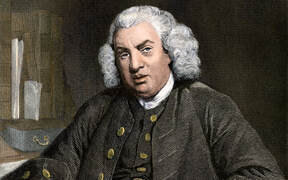 The grumpy looking Dr Samuel Johnson (1709-1784) The grumpy looking Dr Samuel Johnson (1709-1784) In fact English spelling as we know it didn’t come in until Samuel Johnson published the first English dictionary in 1755. Up until then people spelt things pretty much as they felt like it; even their own names. There are, allegedly, at least three different versions of the spelling of Shakespeare’s name, all in his own handwriting (scholars now dispute this, but they always did like to spoil a good story). Even after the publication of Johnson’s dictionary it took some time for spelling to become standardised and to take on their modern forms. American spelling didn’t start to be standardised until 1828 when Noah Webster published his “American Dictionary of the English Language”. This is the one that led to the Americans starting to leave the u out of words like colour and to put z where it had always been perfectly adequate for an s to be. Webster felt it necessary to try to simplify the language for the benefit of the wide variety of immigrants who were arriving in their droves from Europe.  Just a note for my American readers (and many British too, because they make the same mistake). When you see a sign like this one it isn’t pronounced Yee Oldee. The Y isn’t a Y, it is an obsolete letter called a thorne and is pronounced th. Also, you don’t pronounce the e in Olde (or shoppe for that matter). So, it’s just plain “The Old”. Boring, I know. Robert Burchfield, who edited the Oxford English Dictionary for 30 years up until 1986, once caused quite a stir by saying that the British and American forms of English were drifting apart so rapidly that in 200 years’ time it was possible that we would no longer be able to understand one another. However, he was speaking in the pre-internet age (remember that?) and I think it is far more likely that we will soon all be speaking American English. Already I’m being bullied by software that provides an annoying red wiggly line under anything that it thinks should have a z in it when I think it should be an s, or when I spell “colour” with a u. How long before the weaker willed amongst us start to give in to this automated intimidation? Anyway, here’s one person who is happy to educate Americans on how to pronounce Worcestershire and who will always spell colour with a u. * The words “loon” and “lunatic” are derived from the French “la lune” meaning the moon and allude to the alleged strange behaviour of some people and animals at the time of the full moon. If you enjoyed this blog or found it informative, be sure not to miss future editions by signing up to our newsletter. Just click on the button below and we'll even send you an ebook of your choice for doing it. Would you like to be a guest blogger for Selfishgenie Publishing? Just email us with an outline of your blog. And you can also have a free ebook if we use your submission. Our email address is e[email protected]
Once again we turn our blog page over to a guest blogger. The views expressed are those of the blog's author and don't necessarily represent the views of Selfishgenie Publishing 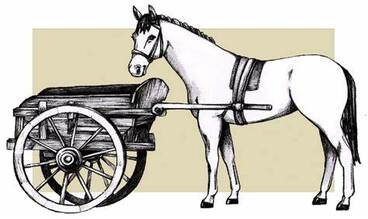 Have you noticed how books are all starting to conform to a pattern these days? After reading the start of a few books quite recently I rejected them, but it was only after I rejected them that I started to realise that the reason I rejected them was because they weren’t conforming to the pattern. Therefore, I wasn’t prepared to carry on reading them. Which was most unfair on the authors who had invested so much time in writing them. So, what is the pattern? It’s the habit many authors now have of hitting the reader between the eyes on page one of the book, with some sort of action scene, before dialling down the action to properly introduce the characters and develop the plot. They then pick up where the action left off and continue the story in a more linear fashion. I have to plead guilty with regards to my own books. It doesn’t just apply to books that are action focused. Romances, too, sometimes start in the middle before returning to the beginning. So, has this always been the way books were written? Going back deep into history, to the start of my own reading, I remember that stories happened in a predictable order. There was the beginning, where the characters were introduced and the starting point of the story was established, then a middle, where the plot was developed, then an end, where the climax was reached and everyone lived happily ever after. This allowed the author to develop their characters before launching them into their adventures. Who could imagine “Pride and Prejudice” being a success if we didn’t know all about Elizabeth Bennet’s personality from the very start. 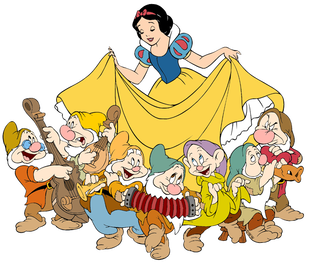 If you think about the fairy stories of childhood, they always conformed to the beginning, middle and end pattern. We don’t first encounter Snow White breaking into the Seven Dwarves’ house, then go back to find out that she was sent out with the huntsman to be murdered on the orders of her wicked stepmother. Similarly, we don’t first encounter Cinderella running away from the ball, losing her glass slipper on the way, then go back to the kitchen to find out she is being bullied by her wicked stepmother and the ugly sisters.. Of course, those stories are for children and a child’s unsophisticated mind couldn’t follow a story told any other way. But what we learn as children tends to stay with us for life. As we grow up the stories still follow the beginning, middle and end paradigm until we reach adulthood. Then mayhem ensues. 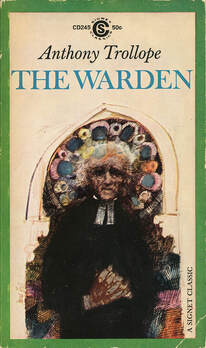 The problem with this traditional style of storytelling, of course, is that it takes time to introduce characters, explain who they are and what they are doing. I remember having been bored silly by “The Warden”, a novel by Anthony Trollope and considered to be a classic. The reason I was trying to read it was because it was a set book for my English exams and I was supposed to be learning how to use language and how to tell a story properly. Today Trollope’s book might never find a publisher, because it takes so long to get going (no great loss if you ask me). The same could be said of many other books that are regarded as classics. So why this change in the approach to storytelling? Well, literary agents are partly to blame (or are they?). When an author wishes to submit a book to an agent in order to try to get a publishing deal, the first thing they do is go onto the agent’s website and read the submission guidelines. These are invariably the same. Submit no more than the first 10,000 words or the first 3 chapters. If the agent likes what they read, they will ask for more. If not, they won’t. Even when it comes to publishers who accept submissions direct from authors, the word limit is usually still applied.  So that’s it guys and gals. If you can’t grab the agent’s attention in those 10,000 or so words your book will be rejected. So, in order to deal with that the author tries to inject some action into the first thousand words in the hope that the agent reads on. The result is that the middle of the book, or at least part of it, gets stuck in before the beginning. However, is it really the agent’s fault? After all, isn’t the author making a rather large assumption about what the agent wants to read and is tailoring their book on the basis of that assumption. Maybe the agent actually wants to see how the characters are developed and how the plot unfolds. Maybe that is why so many authors receive rejection letters. Maybe we are making our submissions based on false assumptions. If you are an agent or publisher reading this, perhaps you’d like to comment. 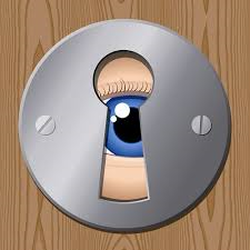 Then there is Amazon. Their “look inside” feature gives the purchaser the opportunity to read a couple of thousand words of a book before they purchase it. This is to match the experience of the “browser”; the reader in the bookshop or library who has the time to spare to actually read the first few pages of the book before they decide whether or not to borrow or buy it. So, again, the author may set out to grab the reader’s attention so that they don’t put the book back down again. But again are we, the authors, usurping the process by making the assumption that the reader won’t borrow or buy our book if we don’t hit them between the eyes on the very first page. It is said that the first line of a book must be an attention grabber. That’s fair enough, but that doesn’t mean that the author then has to launch into climactic action before the reader even knows who the characters are. 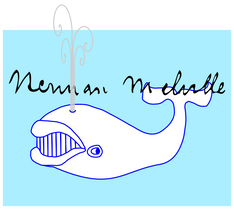 As part of the research for this blog (yes, I do research) I read the ‘look inside’ portion of Herman Melville’s “Moby Dick”. This, of course, is reckoned to be another classic. But based on what I read, I wouldn’t buy it. To be sure, Melville’s use of language is beautiful, but in the opening pages of the book not a lot happens. The reader isn’t even told that a whale is involved. We don't even find out who Ishmael is or what he has to do with the story (not a lot, as it turns out). So, is it therefore not the reader’s fault that the whole nature of storytelling has changed? We expect instant gratification. We want the action to start on Page One, and if it doesn’t we put the book down and move on.  Thinking about this made me think about films (movies) and the way they now tell their stories. We are used to James Bond films, for example, where Bond is always in mortal combat with an enemy in the opening scenes of the film, well before the title music starts up. Other films also use this technique. So, maybe, in our minds, we have started to think that is how our stories should be told. We, too, are putting the action in before the metaphorical title music. So, when an author goes back to the traditional beginning, middle and end format for writing, we think it a little bit odd. Is this what guided my decisions to reject certain books? Or is it just me? I may have been rejecting masterpieces, simply because I didn’t have the patience to let the author tell the story properly. I have had the same conversation with my wife when new TV dramas start up. It’s a bit boring, she’ll say, and my reply will be that we have to establish who everyone is first and how they connect together. 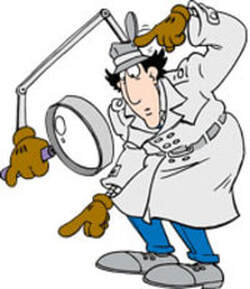 Again, thinking of TV crime shows in particular, they often open up with a dead body and it takes the rest of the story to find out who the dead person really was, and all their little quirks and foibles which led them to being bumped off. Along the way we also find out about the police officers who are investigating the death, but not until after the body is found. Would I still watch the programme if it unfolded any other way? I can hardly complain that a character is underdeveloped if I won’t give the author time to develop him or her. I can’t complain about the plot being difficult to follow if I don’t give the author time to explain what is happening. This is particularly so when it comes to back story. It is like trying to tell the story of World War II without first telling the reader who the Nazis were. Will I be changing the way I write my own stories as a result of what I have deduced? I don’t know. I rather like hitting the reader between the eyes on Page One. I don’t do it in every book I have written, but I have to admit to doing it in the majority of them. Judge for yourselves whether it is the right technique. Just click on the “books” tab at the top of this page to find out more. If you enjoyed this blog, or found it informative, be sure not miss future editions by signing up for our newsletter. Just click on the button below. We'll even let you choose a FREE ebook for doing it. Do you fancy being a guest blogger for Selfishgenie Publishing? Just email us and tell us what you would like to blog about. Find our email address on our "Contact" page.
Once again we are turning our blog page over to a guest blogger. All the views expressed in this blog are those of the blogger and are not necessarily representative of the views of Selfishgenie Publishing. 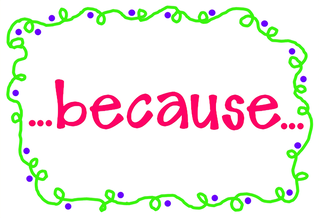 Why do it? Why put yourself through all the trials and tribulations of writing a novel, searching for an agent, then possibly having to do all the work to self-publish if you can’t attract an agent? I have applied some thought to this and have come up with the following list of reasons. It isn’t exhaustive, so please feel free to add your own suggestions in the comments below the blog. 1. You like writing. I know that this sounds obvious, but I have actually met authors who have told me that they love being an author but hate all the writing that goes with it. Sorry, that will never work out. You can test yourself on this. If, suddenly, an hour of your time were to come free, which would you rather do (A) watch something on TV or (B) sit down and try to write something. If the answer isn’t (B) then you are never going to be an author. 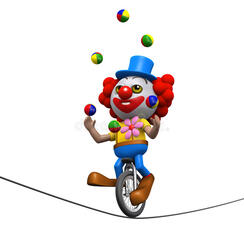 2. You have a genuine talent. When you first decide to write you may not know if you have the talent for it or not. Even when you have written your first book and shown it to friends and family you still can’t be sure, because friends and family often want to be kind and so they say kind things about your work. But if you do have a talent then it is vital to express it, or frustration is the only possible outcome. The first review on Amazon (other book selling sites are available) that is submitted by a stranger will tell you if you have a talent or not. But there are two different forms of talent that make a good author. The first is a talent for story telling – and it doesn’t have to manifest itself in the written form. If you are the sort of person who is able to make up stories for the entertainment of others, you have this talent and you are halfway to becoming a successful author. The second talent is the actual writing part. Being able to construct sentences that grab the reader’s attention and provide them with the emotional input they crave. Being literate in the grammatical sense helps, but that can be sorted out by a proof reader or editor. 3. You love reading. Reading and writing go hand in hand. All real authors start off as avid readers. The best books inspire us to have a go, while the worst books inspire us to try to do better ourselves. 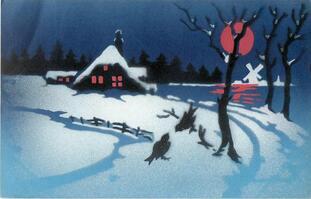 4. You live somewhere where there are harsh winters. I’m serious. It’s far easier to sit indoors and write a thousand words if the sun isn’t shining outside. Even small outdoor distractions, such as tidying the garden, get in the way of writing. If you live in the sort of latitudes where it is dark for 18 hours out of 24 (or even longer) then so much the better. 5. You have something you want to say. We all have opinions, but some have stronger feelings about things than others. Writing them down in the form of a novel allows you to imbue your character with your opinions while also telling a story. However, there is a downside to this. You may be alienating all those potential readers who disagree with your opinions. While you may believe that you are right, they have the right to disagree with you. 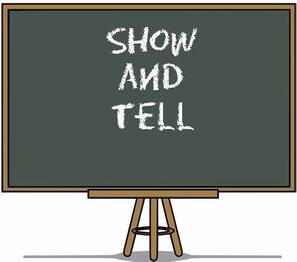 6. You want to expose something that needs exposing. Making an issue part of your plot allows you to expose a problem or a scandal. If your readers are intelligent (they probably are, otherwise they wouldn’t be reading books, they’d be playing computer games) they will see where the fiction ends and where the reality starts. You can often reach a far larger audience with a novel than with a polemic. To Kill A Mockingbird did far more to expose racism in the USA than any number of learned treatises. 7. You want to entertain people. We can’t all sing or dance or play the piano, but if you can write a decent story, you can be an entertainer. Story telling as a form of entertainment goes back far further in history than music or dance. 8. You have to get the stories out of your head. So many good ideas for stories, but they are no good stuck inside your head. They just nag and nag at you. So, tell the stories and stop them nagging you. 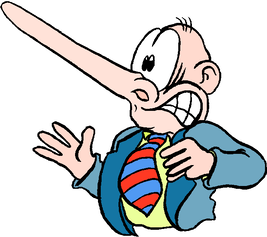 9. It’s cathartic. Expressing yourself artistically (yes, that’s what authors are doing) makes you feel better. Getting your demons out of your head and onto the paper prevents them from praying on your mind and threatening your sanity. 10. You like telling lies. Authors tell lies for a living. The best of them are able to make you believe their lies so well that they can transport you to a whole world that they have created out of their lies. Tolkein, Pratchett, Douglas Adam, Richard Adams, the list goes on but the one thing these greats have in common is that their worlds didn’t exist, but they made us believe in them anyway. They could sell snow to an Eskimo. And One Reason Why You Shouldn’t Become An Author. 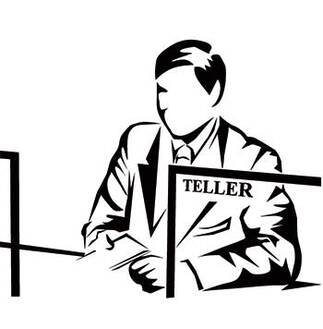 1. You want to make lots of money. Sadly, you probably won’t. Even if you sell quite a lot of copies, your publisher, agent, printer, retail outlet etc will all take a cut. Typically the author only gets about 10% of the gross income from sales and then the Inland Revenue want a cut of that. For a £9.99 paperback ($11.50 approx) the author won’t get much more than 80 pence. To make the top 100 best seller lists you have to sell at least 100,000 copies, which means the author might get £80,000 before tax. But the majority of authors, probably 90% of them, will never sell more than 1,000 copes, so earnings expectations are very low. According to The Guardian most authors make less than £600 a year. Given that you have probably invested about 1,000 hours in writing your book, that isn’t a very good return. It’s certainly below the hourly rate for the so-called Living Wage. A meagre 1.7% of traditionally published authors and 0.7% of self-published authors make in excess of £70,000 ($100,000 approx). The article is a bit old now, but the fundamentals of publishing haven’t changed since it was written. The big money from books comes from film and TV rights. If your book attracts that attention then the sky is the limit, but again, that won’t happen for about 90% of authors.  How many authors are out there writing away and how many of them will hit the big time? Well, accurate figures aren’t available because most data is based on sales and if no sales are forthcoming you won’t be counted. Then there are the thousands of authors who are still working away in the bedrooms, kitchens or sheds to complete their first manuscript and can’t be counted because they haven’t yet broken cover. But put it this way, over a million books are uploaded onto Amazon each year, the vast majority by by self-published authors and then you have to add on those that are published by small, on-line publishers. Whereas the total output of the big publishing houses, who dominate the market, is between 1,000 and 2,000 books per year of all types (UK figures). Even with the backing and marketing budget of a major publishing house most of those books will sell less than the magic 100,000 copies needed to make it onto a best seller list. In Susanne Collins’s The Hunger Games the supporters always say to the combatants, “may the odds always be in your favour”. The truth is that in book publishing, the odds are always stacked against success. 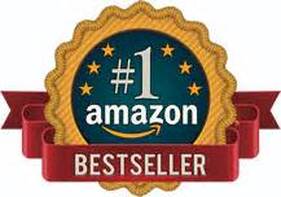 Ignore all those claims made by some authors of being “Number 1” on Amazon’s best seller list for such-and-such a category. The way Amazon works you can make it to number one with the sale of half a dozen copies in a day, even less in some obscure categories. You’ll only be there for a day, perhaps even for an hour, but that’s long enough to do a “screen save” to share on Facebook or Twitter. if you doubt me, re-read Reason 10 above. Many writers will never make anything from the sale of their books. That doesn’t mean that they are bad books. How would anyone know if they haven’t read a copy? No, the authors don’t make any money because readers like to stick with the tried and tested. They may read a book that is recommended to them by a friend or relative, but they don’t often go seeking out new authors for themselves. The friend or relative probably bought their copy because it was reviewed in a newspaper or magazine, channels that are securely stitched up by the big publishers. Hey – who said that the world was fair? Show me the contract! That is why authors are always asking for reviews. So if you, as a reader, do find a new author and, if you like their book, please consider sharing your discovery by writing a review. So, if you are going to become an author, do it for the love of writing because it is probably the only reward you will ever get. And for those very few of you who will one day hit the big time – don’t forget the little people! If you have enjoyed this blog and you want to be sure of not missing the next one, just sign up for our newsletter. We promise not to spam you and we'll even let you choose a free ebook for doing it. Just click on the button below. And if you would like to be a guest blogger for us, just send us your blog idea. You can find our email address here.
This week we have lent our blog to the famous advice columnist (also know as an Agony Aunt), Auntie Vera*. Read on to discover what advice she offers the lovelorn, the confused and the downright bewildered. 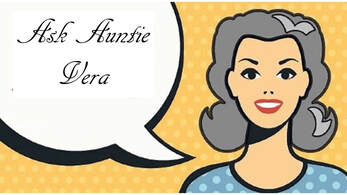 Dear Auntie Vera, I love dancing and like going out dancing on a Saturday night, but my boyfriend just wants to stay in and watch Match Of The Day. What should I do? Signed, Dancing Queen. Dear Dancing Queen, Get a new boyfriend. 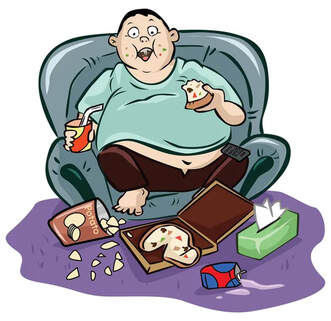 Dear Auntie Vera, When we first started going out, my boyfriend used to dress smartly, talk to me about my interests and pay attention to my needs. Now we’ve been going out for a while he just wears trakkie bottoms and a filthy tee shirt, talks only about football and ignores me unless he wants sex. What should I do? Signed, Peeved Dear Peeved, Get a new boyfriend. Dear Auntie Vera, My girlfriend has just dumped me because I wear trakkie bottoms and a filthy tee shirt, talk only about football and she says I ignore her except for when I want sex. What is her problem? Signed, Gooner. Dear Gooner, Look in a mirror. Would you date you? Dear Auntie Vera, I have often thought that I might make a good agony aunt. I like people, I’m a good listener, I have a lot of life experience and people listen to what I have to say. What do you think? Signed, Auntie Velma. Dear Auntie Velma, you sound like a crashing bore. You will probably do well but stay off my patch or you’ll get a visit from the boys! 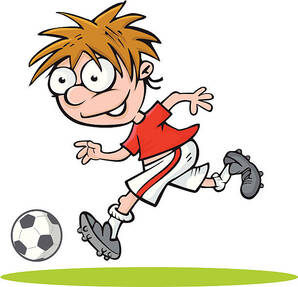 Dear Auntie Vera, I’ve just met this fabulous footballer and I think I love him, but I’m not sure I can trust him. He has a bit of a reputation and I’m worried that if I marry him he might cheat on me. What should I do? Signed, Football Flirt Dear Football Flirt, get a pre-nup, marry him and then wait for him to do the inevitable. You’ll get half his money in the divorce settlement. Dear Auntie Vera, I’m a very rich footballer and I can have any girl I want. Indeed, I’ve already had most of them, but I’ve just met this gorgeous girl and I’m worried that she’s only after me for my money. What should I do? Signed, Fickle Footballer. Dear Fickle Footballer, You’re arrogant, overbearing and you have the personality of a crustacean. Of course she isn’t after you for your money. She loves the real you. Marry her. Agree to whatever she asks for in the pre-nup.  Dear Auntie Vera, I post lots of things about myself on social media, including photos and most of my personal issues, my likes and dislikes and my political and religious views. I really like the publicity so much. But that isn’t my problem. My problem is that the newspapers keep writing stories about me as though they know me. Do you think my phone is being bugged? Signed On-line Celebrity. Dear On-line Celebrity. Are you really that stupid? Dear Auntie Vera, Whenever I go on social media I get bombarded with advertising. But the puzzling thing is that the advertisements are all for products I have done searches on, or I have posted comments on in other people’s posts. I’ve even shared some of them. I did a quiz about 1970s pop bands and then got advertisements for products aimed at people in their 60s. It's almost as if the advertisers know me. Is this a coincidence?  Signed Social Media Junkie Dear Social media Junkie. Are you really that stupid? Dear Auntie Vera, The world is going to rack and ruin. What should we do? Signed Desperate. Dear Desperate, Go to Tenerife instead. 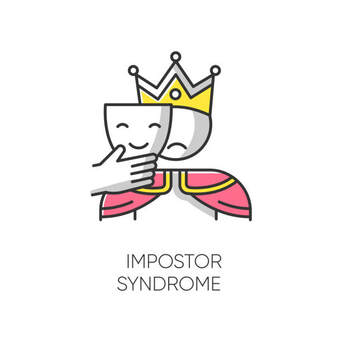 Dear Auntie Vera, I am an author plagued by feelings of doubt about my talent. I don’t think my work is good enough, despite the fact that lots of readers buy my books and post nice reviews about them. What should I do? Signed, Doubting Wordsmith. Dear Doubting Wordsmith, The short answer is “grow a pair”, but I doubt that this will satisfy you. So, here’s the psychobabble answer. There is nothing unusual about doubting our own abilities. In fact, it is healthy to do so as we then try to do better. But don’t let doubt cloud your belief in yourself. Let others be the judge of your talent, as they will see it through different eyes. Only if the readers say you have no talent should you re-think your life choices. Dear Auntie Vera I have just signed a book deal. How much am I allowed to brag about it on social media? Signed Proud Author Dear Proud Author. Brag about it as much as you like. Nobody of social media gives a you-know-what anyway and it is better than boring your family and friends with the news.  Dear Auntie Vera, I’m a member of a writing community that uses the hashtag #WritingCommunity on social media. They all say how much they support Indie authors, but very few seem to buy any of the work by them. Is it all talk? Signed Puzzled Tweep Dear Puzzled Tweep. Yes it is all talk. Everything you see on social media is all talk. That’s why social media exists. Social Media "communities" give the illusion of providing support or taking action, while not actually having to do anything. But you can be different and take action by buying the books of other Indie authors. But you probably won’t because that requires you to take action too and if you wanted to do that you wouldn’t be asking me questions to which you already know the answers. 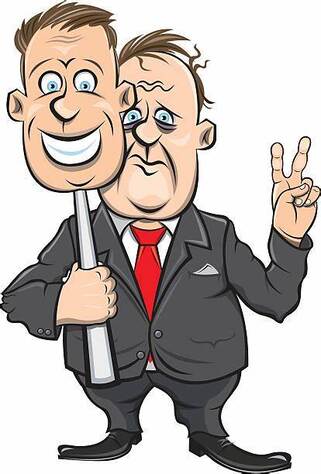 Dear Auntie Vera, No matter which political party I vote for, the same politicians seem to get elected. I don’t mean they are from the same party; I mean they just do as little as the previous lot. Is it me? Signed Frustrated Voter. Dear Frustrated Voter. No, it isn’t you. To quote Emma Goldman “If voting changed anything, it would have been made illegal”. Politicians stand for election because they have failed in just about every other walk of life. If they were clever, they’d be working in commerce or industry earning twice as much money. If they had real compassion, they’d be working for a charity on half the money and making a real difference to people’s lives. There is a famous line from George Bernard Shaw’s “Man and Superman”. “Those who can, do. Those who can’t do, teach.”** I’ll add to that with my personal view, “Those who can’t teach become politicians”. The people they are elected to represent have no further say in what the politicians do, at least until the next election, when they probably won’t vote him (or her) out of office because they could never vote for “the other lot” (regardless who the other lot are). This is a consequence of tribal behaviour and and the need to feel that we belong somewhere. This is why people also support failing football teams and talentless celebrities. So, we keep getting governments made up of people who lack any real talent, who rely on their manipulative Civil Servants to do most of the work, who want to please their financial backers more than they want to solve the nation’s problems and who cling onto power by making it seem they are doing something when whatever they are actually doing will change very little and which will benefit their financial backers the most. This applies to all the political parties, not just to the one that is in power at the moment. It probably also applies in all countries. Please remember all that the next time you step into a polling booth. But whatever you do, don’t stop voting. One day you may vote for that rarest of beasts, a politician that really wants to make a difference, instead of one that just says they want to make a difference. * Auntie Vera is not a real person and all of the above is intended as satire. Please do not take either the questions or the answers too seriously. However, satire is based on real life and usually carries its own lessons within it. ** Any teachers offended by this quote should complain to George Bernard Shaw, not to Selfishgenie Publishing. We happen to think teachers are great and do a wonderful job. Is that enough grovelling yet? If you have enjoyed this blog and don't want to miss future editions, then sign up to our newsletter. We promise not to spam you and we'll even let you choose a free ebook for doing it (T&C apply). Just click the button below.
|
AuthorThis blog is compiled and curated by the Selfishgenie publishing team. Archives
June 2025
|

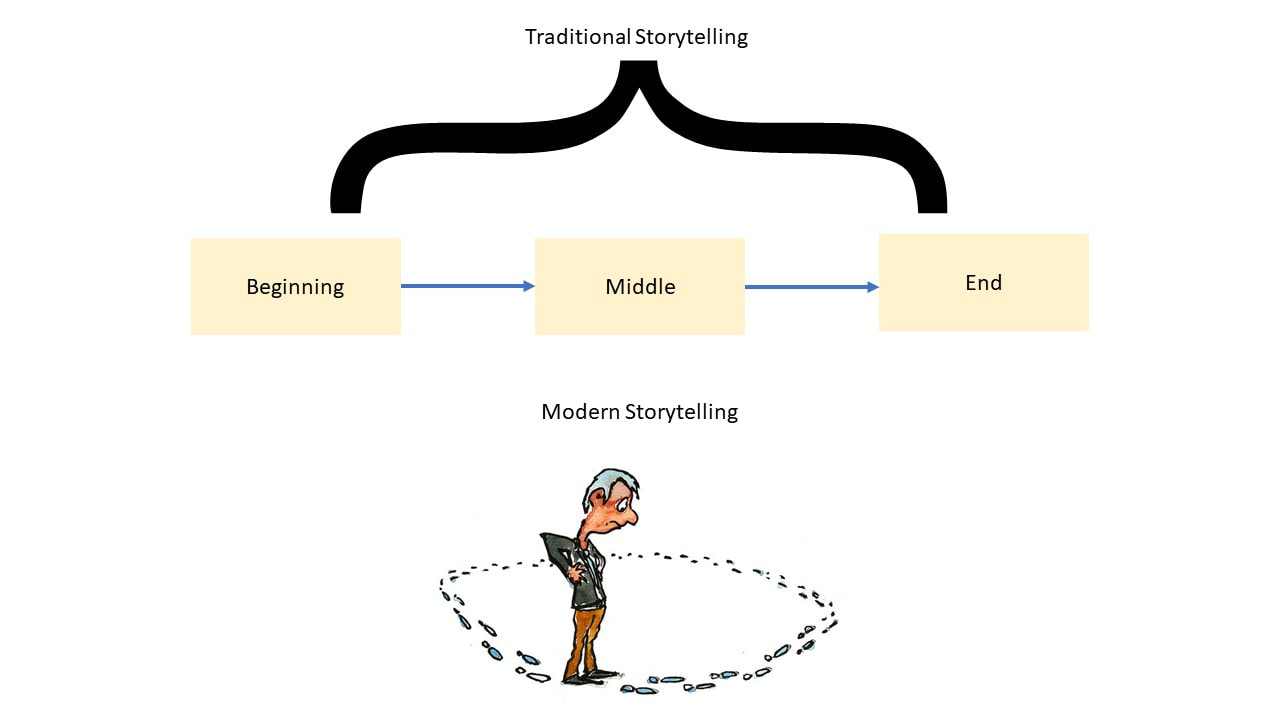
 RSS Feed
RSS Feed